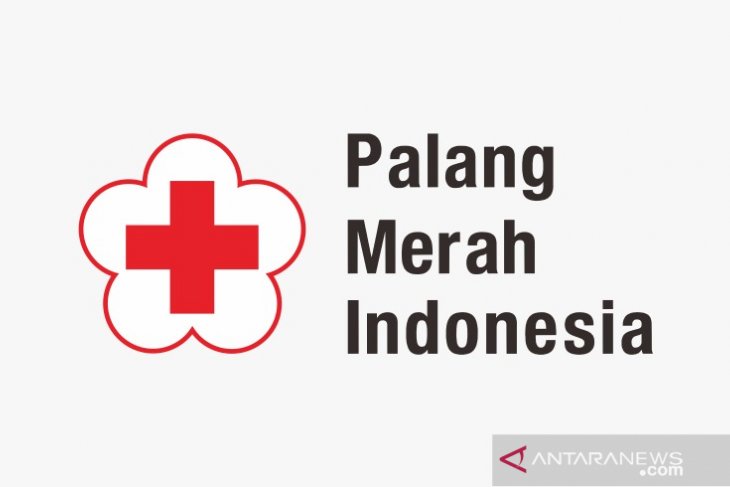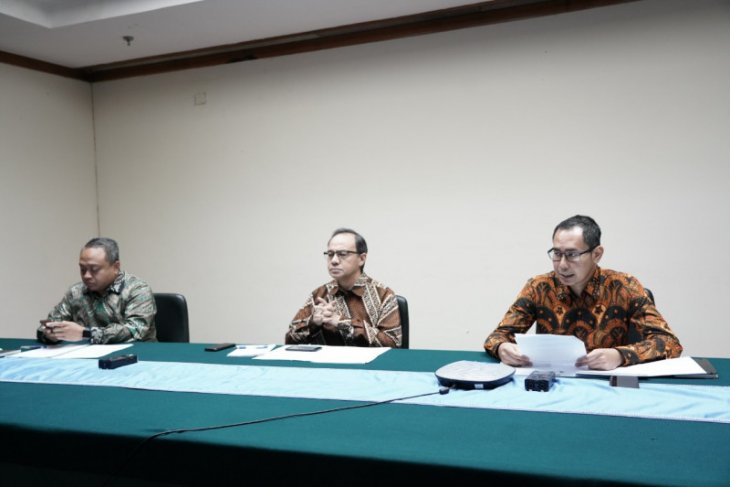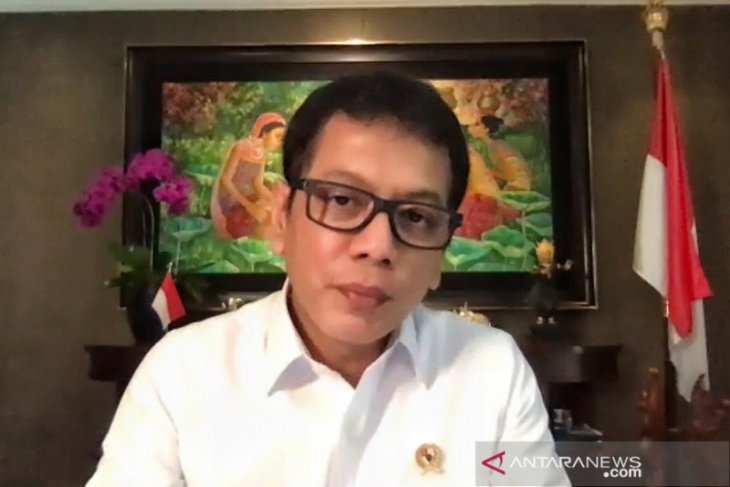Live Streaming
Program Highlight
Company Profile
May
Internet Traffic Projected to Rise 20 Percent during Ramadhan
Written by Ani HasanahIllustration - Cellular calls are also expected to rise by 5 percent during the fasting month of Ramadhan this year. (Pixabay)
Cellular operators are expecting a 20-percent surge in Internet traffic during the month of Ramadhan this year, with the COVID-19 outbreak contributing to higher Internet usage.
Most cellular operators usually experience an increase in traffic during the month of Ramadhan and this year, the traffic surge would also be boosted by the work-from-home policy that has been adopted by companies since March, according to cellular operators.
Vice president of corporate communications at Telkomsel, Denny Abidin, estimates that Internet traffic will increase by 20 percent during Ramadhan.
"Telkomsel has predicted that during the Ramadhan and Eid al-Fitr period, there will be a surge in broadband-based communication traffic of around 20 percent," he said in an official statement, received in Jakarta on Wednesday.
Meanwhile, XL Axiata's head of external communications, Henry Wijayanto, has also confirmed that there has been an increase in service traffic during Ramadhan compared to normal days.
"As regards data service, it is estimated to increase by around 15 to 20 percent," he said.
Cellular calls are also expected to rise by 5 percent during the fasting month.
Furthermore, mobile operator Smartfren has predicted an increase in Internet service traffic of between 10 and 15 percent during the month of Ramadhan, based on past experience.
"Based on Smartfren's experience, various efforts have been made to face the surge in the month of Ramadhan, with the current COVID-19 pandemic (taken into consideration). Traffic data has also increased with people working from home," said Smartfren's vice president of technology, Munir Syahda Prabowo.
Additionally, considering the latest development, Indonesia has estimated that Internet usage needs will increase by 20 percent compared to normal days.
To ensure quality and adequacy of network capacity during Ramadhan, cellular operators have taken various measures, such as managing traffic routes, alerting fast response teams, and operating mobile base transceiver stations. (ANTARA)
May
Ministry Readies Protocols for Film Industry amid COVID-19 Pandemic
Written by Ani HasanahMinister of Tourism and Creative Economy Wishnutama Kusubandio said during a virtual conference on Wednesday(ANTARA)
The Ministry of Tourism and Creative Economy is readying numerous protocols that can be applied by the film industry to ensure smooth functioning amid the coronavirus pandemic.
In collaboration with the Indonesian Film Agency (BPI), the Ministry of Tourism and Creative Economy (Kemenparekraf) has begun discussions on challenges faced by film workers in the country and prepared protocols to rescue the film industry reeling from the impact of the pandemic.
"COVID-19 has posed severe challenges to the film industry, not only cinema but also production. We are providing various protocols to deal with the new conditions," Minister of Tourism and Creative Economy Wishnutama Kusubandio stated during a virtual conference on Wednesday.
After drafting, a protocol will be tested to cover health and safety aspects.
"If the protocol is ready, we will conduct simulations and trials, as economic life must continue. This is prepared for ensuring better conditions than what they are today," he explained.
Meanwhile, Dewi Umaya, deputy chairperson of BPI, remarked that her party had, until now, continued to coordinate with the government to prepare protocols that will later be forwarded to stakeholders.
"After being compiled in the near future, the stakeholders will be notified of it. These protocols must undoubtedly be in accordance with all parties. Later, this protocol will be sent to the government and seen by the Task Force," Umaya remarked.
The Ministry of Tourism and Creative Economy and the Tourism and Creative Economy Agency lauded the inventions and new trends started by the nation's creative minds that have chosen to be productive in the midst of the COVID-19 pandemic.
Acting Deputy of Digital Economy and Creative Products Joshua Simandjuntak had earlier stated that all sub-sectors of the creative economy were bearing a major brunt of the COVID-19 pandemic. Currently, he noted that the situation was no longer merely a health emergency but also an economic emergency.
To this end, he lauded creative individuals, who are able to adapt and also create new trends and opportunities.
"In a situation like today, we need to stay productive, even within our limitations, and right now, we need to adapt," he noted. (ANTARA)
May
Indonesia must not Over-Rely on Foreign COVID-19 Relief: Kalla
Written by Ani Hasanah
Former Indonesian vice president and chairman of the Indonesian Red Cross, Jusuf Kalla, said Indonesia must make a real contribution to global scientific efforts for developing effective COVID-19 treatment, and not over-rely on foreign donations.
"Indonesia must contribute to the world of science (in devising ways) for handling the new coronavirus disease," Kalla said in a press statement in Jakarta on Wednesday following a meeting with the head of the Eijkman Institute for Molecular Biology, Amin Subandrio.
Regarding the Indonesian Red Cross' (PMI's) cooperation with the Eijkman Institute for Molecular Biology, Kalla said, PMI is supporting the institute by providing access to its blood processing facilities in 15 big cities in the country.
"PMI is in a position to (provide) back-up, but the support is not in the scientific area, which is Eijkman's responsibility," the former Indonesian vice president said, adding that Eijkman is welcome to use PMI’s blood processing facilities.
Meanwhile, head of the Eijkman Institute for Molecular Biology, Amin Subandrio, said the government is preparing protocols and protection ethics for medical workers involved in the collaborative program of convalescent plasma therapy for COVID-19 patients.
"Our friends at hospitals need protection ethics and rules so that if something happens and there is a lawsuit, they would not be blamed because this (program) has been approved by the Indonesian Food and Drug Monitoring Agency (BPOM) and the ethics committee," he explained.
In short, convalescent plasma therapy-related services can start after the national protocols and protection ethics have been approved. The services would begin with the collection of data of COVID-19 survivors available at hospitals.
The data of the COVID-19 survivors would be followed up by PMI to examine their eligibility to become donors for convalescent blood plasma.
"Processes from the hospital to collecting the blood plasma will be conducted by PMI workers," he said, adding that the plasma would later be examined by Eijkman at its laboratories, which have a total capacity of processing 1,116 samples per day.
In early May, the Indonesian Red Cross for Jakarta region (PMI Jakarta) had expressed willingness to collect the blood of recovered COVID-19 patients to conduct a trial for COVID-19 treatment using convalescent blood plasma in Indonesia, as proposed by the Eijkman Institute. (ANTARA)
May
Indonesian Government Announces Aid for Indonesians Affected by Malaysia's MCO
Written by Ani Hasanah
The Indonesian Foreign Ministry's director for the Protection of Citizens and Legal Entities Overseas, Judha Nugraha (extreme right). (Handout Kemlu RI)
The Indonesian Government announced on Wednesday that it will provide aid to Indonesian migrant workers, including undocumented workers, who have been severely affected by the impact of Malaysia's movement control order (MCO).
The government is obliged to assist all Indonesians severely affected by the neighboring country's MCO policy irrespective of their status, the Indonesian Foreign Ministry's director for the Protection of Citizens and Legal Entities Overseas, Judha Nugraha, said.
"We have identified that undocumented Indonesian migrant workers and casual workers are most vulnerable (and would) get affected by the (further) enforcement of the MCO. Therefore, they will be the prioritized targets of our relief aid program," he declared here on Wednesday.
The Malaysian Government is planning to extend the enforcement of its movement order control until June 9, 2020, to slow the spread of the deadly coronavirus disease. The MCO was first imposed on March 18 this year.
Regarding the relief aid program for Indonesian workers in Malaysia, Nugraha said the Indonesian Embassy in Kuala Lumpur has prepared an online registration platform to enable all Indonesians there to get registered for the program.
Since the enforcement of the MCO in March, the Indonesian Embassy in Kuala Lumpur and its consulate general and consulate offices in Penang, Johor Bahru, Kota Kinabalu, Kuching, and Tawau have distributed food packages to severely-affected Indonesians.
Since the month of April, 348,843 recipients have been provided relief under the aid program in Malaysia, he added.
Coronavirus infections initially emerged in the Chinese city of Wuhan at the end of 2019. Since then, COVID-19 has spread to at least 202 countries and territories, including Malaysia and Indonesia, with a massive spurt in the death toll.
The Indonesian Government officially confirmed the country's first cases on March 2 this year. To contain the spread of the coronavirus disease, it has enforced large-scale social restrictions and distancing measures in many cities, including Jakarta, Bogor, Bekasi, Surabaya, and Makassar.
As of May 13, 2020, 108 Indonesians residing in Malaysia have tested positive for the coronavirus disease. While 27 of the total patients have made a full recovery, 79 others remain hospitalized, and two have died. (ANTARA)
The Indonesian Government announced on Wednesday that it will provide aid to Indonesian migrant workers, including undocumented workers, who have been severely affected by the impact of Malaysia's movement control order (MCO).
The government is obliged to assist all Indonesians severely affected by the neighboring country's MCO policy irrespective of their status, the Indonesian Foreign Ministry's director for the Protection of Citizens and Legal Entities Overseas, Judha Nugraha, said.
"We have identified that undocumented Indonesian migrant workers and casual workers are most vulnerable (and would) get affected by the (further) enforcement of the MCO. Therefore, they will be the prioritized targets of our relief aid program," he declared in Jakarta on Wednesday.
The Malaysian Government is planning to extend the enforcement of its movement order control until June 9, 2020 to slow the spread of the deadly coronavirus disease. The MCO was first imposed on March 18 this year.
Regarding the relief aid program for Indonesian workers in Malaysia, Nugraha said the Indonesian Embassy in Kuala Lumpur has prepared an online registration platform to enable all Indonesians there to get registered for the program.
Since the enforcement of the MCO in March, the Indonesian Embassy in Kuala Lumpur and its consulate general and consulate offices in Penang, Johor Bahru, Kota Kinabalu, Kuching, and Tawau have distributed food packages to severely-affected Indonesians.
Since the month of April, 348,843 recipients have been provided relief under the aid program in Malaysia, he added.
Coronavirus infections initially emerged in the Chinese city of Wuhan at the end of 2019. Since then, COVID-19 has spread to at least 202 countries and territories, including Malaysia and Indonesia, with a massive spurt in death toll.
The Indonesian Government officially confirmed the country's first cases on March 2 this year. To contain the spread of the coronavirus disease, it has enforced large-scale social restrictions and distancing measures in many cities, including Jakarta, Bogor, Bekasi, Surabaya, and Makassar.
As of May 13, 2020, 108 Indonesians residing in Malaysia have tested positive for the coronavirus disease. While 27 of the total patients have made a full recovery, 79 others remain hospitalized, and two have died. (ANTARA)




